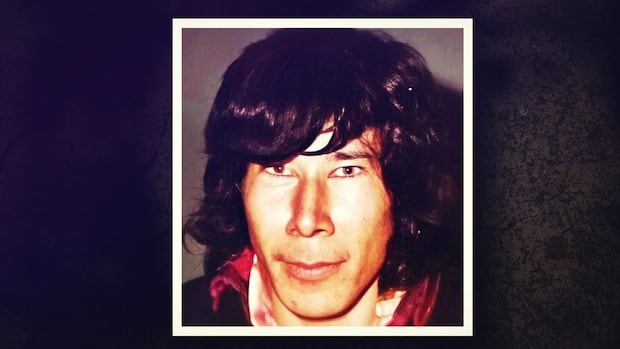ManitobaA First Nations man convicted in the killing of a Winnipeg man more than 50 years ago is one step closer to having his name cleared following his own death in 2011, after Canada’s justice minister ordered a new appeal in his case on Monday.Posthumous appeal for Russell Woodhouse, who died in 2011, marks 1st time justice minister has taken that stepCaitlyn Gowriluk · CBC News · Posted: Sep 29, 2025 9:00 AM EDT | Last Updated: 4 hours agoRussell Woodhouse was convicted of manslaughter in a 1973 homicide. He died in 2011. (Submitted by Justin Fritzley)A First Nations man convicted in the killing of a Winnipeg man more than 50 years ago is one step closer to having his name cleared following his own death, after Canada’s justice minister ordered a new appeal in his case on Monday.Russell Woodhouse, who died of cancer in 2011, was among four young men from Pinaymootang First Nation, in Manitoba’s Interlake area, convicted in the 1973 killing of Ting Fong Chan.Chan, a 40-year-old father of two, was stabbed and beaten to death near a downtown Winnipeg construction site as he walked home after his shift one night at the Beachcomber restaurant.Woodhouse’s appeal comes after a post-mortem conviction review in his case — marking what the federal government says is the first time that type of review has led to a remedy under the Criminal Code for someone who is already dead.The in-depth review by the Justice Department’s Criminal Conviction Review Group, led by Justice Minister Sean Fraser, found “reasonable grounds to conclude that a miscarriage of justice likely occurred in Mr. Woodhouse’s 1974 conviction,” the department said in a news release.Woodhouse was convicted of manslaughter in Chan’s death following a trial and sentenced to 10 years in prison.His co-accused — Brian Anderson, Allan Woodhouse and Clarence Woodhouse, Russell’s brother — were convicted of murder. All three of them have since been exonerated, and are now seeking compensation from all three levels of government for their wrongful convictions. Russell Woodhouse’s family continued to pursue an exoneration on his behalf after his death. That included an application from his sister, Linda Anderson, for a conviction review with support from Innocence Canada in 2023, the release said. False confessions, police assaultsThe four men convicted in the case — who ranged in age from 17 to 21, according to newspaper coverage at the time — were rounded up by police largely because of eyewitness accounts following Chan’s killing that mentioned Indigenous people.All four ended up convicted in Chan’s death based mostly on confessions written in fluent English that police said they got from the young men — even though some of them barely spoke the language, and all said they had been forced or tricked into signing the admissions of guilt by officers who assaulted them.The case was prosecuted by George Dangerfield, who was the Crown attorney in four other wrongful conviction cases.Though concerns about the men’s innocence were raised early on, it took until July 2023 before Brian Anderson and Allan Woodhouse were finally exonerated, and until October 2024 for Clarence Woodhouse’s exoneration.WATCH | Family said in January 2025 they wanted Russell Woodhouse’s name cleared:Family wants man’s name cleared in 1973 Winnipeg homicideFor more than 50 years, Russell Woodhouse has been considered a convicted killer. Now, there is one final step before his name can be cleared, as his family awaits a decision in his case from Canada’s justice minister – more than a decade after his death.During Clarence’s exoneration, Manitoba Court of King’s Bench Chief Justice Glenn Joyal apologized in court to those three men, acknowledging that racism marred everything in the case, from the police investigation to their trial. While Justice Minister Fraser’s order for a new appeal does not decide Russell Woodhouse’s guilt or innocence, it will return the case to the courts for new information to be considered, giving the family “another chance to appeal his conviction,” the department’s news release said. In 2024, the federal government created the independent Miscarriage of Justice Review Commission, which will be based in Winnipeg and review similar cases.But until that new system is in place, the justice minister still has the responsibility, through an authority “that has long existed in law,” to look into cases like Woodhouse’s, the release said. Fraser said in the news release it’s the government’s responsibility “to make sure Canadians can trust their justice system, and that means, in rare cases, taking action to right historic wrongs.”ABOUT THE AUTHORCaitlyn Gowriluk has been writing for CBC Manitoba since 2019. Her work has also appeared in the Winnipeg Free Press, and in 2021 she was part of an award-winning team recognized by the Radio Television Digital News Association for its breaking news coverage of COVID-19 vaccines. Get in touch with her at caitlyn.gowriluk@cbc.ca.Follow Caitlyn Gowriluk on X
Thursday, 5 Mar 2026
Canada – The Illusion
Search
Have an existing account?
Sign In
© 2022 Foxiz News Network. Ruby Design Company. All Rights Reserved.
You May also Like
- More News:
- history
- Standing Bear Network
- John Gonzalez
- ᐊᔭᐦᑊ ayahp — It happened
- Creation
- Beneath the Water
- Olympic gold medal
- Jim Thorpe
- type O blood
- the bringer of life
- Raven
- Wás’agi
- NoiseCat
- 'Sugarcane'
- The rivers still sing
- ᑲᓂᐸᐏᐟ ᒪᐢᑿ
- ᐅᑳᐤ okâw — We remember
- ᐊᓂᓈᐯᐃᐧᐣ aninâpêwin — Truth
- This is what it means to be human.
- Nokoma











